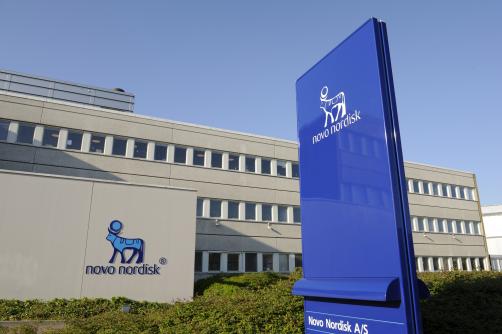
Novo Nordisk obesity drug gets FDA nod
pharmafile | December 24, 2014 | News story | Sales and Marketing | FDA, Novo Nordisk, Victoza, diabetes, liraglutide, saxenda
The US Food and Drug Administration has shown Novo Nordisk’s obesity drug Saxenda the green light to aid chronic weight management.
In addition to a regime of physical activity and a low-calorie diet, Saxenda (liraglutide) is approved for use in obese adults who have at least one weight-related condition such as hypertension, type 2 diabetes, or high cholesterol.
The treatment is essentially just a higher dose form of Novo’s own blockbuster diabetes drug Victoza, and the approval news follows the FDA panel backing confirmed back in September.
According to analysts at the time it could generate at least an extra $1 billion in revenue for the company. The safety and effectiveness of Saxenda was evaluated in three clinical trials that included approximately 4,800 obese and overweight patients with and without significant weight-related conditions.
In comparison the firm’s alternate diabetes version of the treatment (Victoza) is for certain type 2 patients who are not able to control their blood sugar levels.
It is usually taken as an add-on to metformin or sulphonylurea when these drugs are no longer helping patients to keep their blood sugar levels down, and is the step before needing to use insulin.
It made just over $2 billion in sales last year, a growth of 27% on 2012 sales, but has faced safety concerns from regulators, predominately over its potential to increase the risk of side effects on the pancreas.
Growing obesity market
The Danish firm’s Saxenda approval is the FDA’s fifth nod in the obesity market and follows Orexigen’s Contrave, and the 2012 approvals of Vivus’ Qsymia (phentermine/topiramate) and Arena Pharmaceuticals’ Belviq (lorcaserin).
These were the first new obesity treatments approved in the US since Roche’s Xenical (orlistat) in 1999. But all of these medicines have suffered a difficult path on the road to approval, with a number of FDA rejections and concerns from doctors over safety, notably the effect of these medicines on the heart.
This has led to poor sales trajectories, despite the high rate of obesity in the US. Arena earlier reported Belviq sales of just $5.7 million in 2013, with $5.3 million of that going to its partner Eisai.
Qsymia’s sales were higher at $23.7 million in the same period, but still weak given the market potential.
Although Saxenda is now approved it will not have the leading edge simply by being the fifth such medicine to market, however analysts still expect the drug to do well given that it has been used for four years by doctors for diabetes, and has not faced the same cardiovascular safety concerns as many of its rivals.
“Obesity is a public health concern and threatens the overall well-being of patients,” says James Smith, acting deputy director of the division of Metabolism and Endocrinology Products in FDA’s Center for Drug Evaluation and Research.
“Saxenda, used responsibly in combination with a healthy lifestyle that includes a reduced-calorie diet and exercise, provides an additional treatment option for chronic weight management for people who are obese or are overweight and have at least one weight-related comorbid condition.”
The FDA is now requiring that post-marketing studies are conducted for Saxenda and in addition, its cardiovascular safety is being investigated in an ongoing outcomes trial.
Brett Wells
Related Content

MRM Health’s ulcerative colitis treatment receives FDA Investigational New Drug clearance
Microbial Resource Management (MRM) Health has announced that its lead programme, MH002, has received Investigational …

Complement Therapeutics’ geographic atrophy treatment receives FDA Fast Track designation
Complement Therapeutics has announced that CTx001, its gene therapy treatment for geographic atrophy (GA) secondary …

Johnson & Johnson submits robotic surgical system for De Novo classification
Johnson & Johnson has announced the submission of its Ottava Robotic Surgical System for De …





